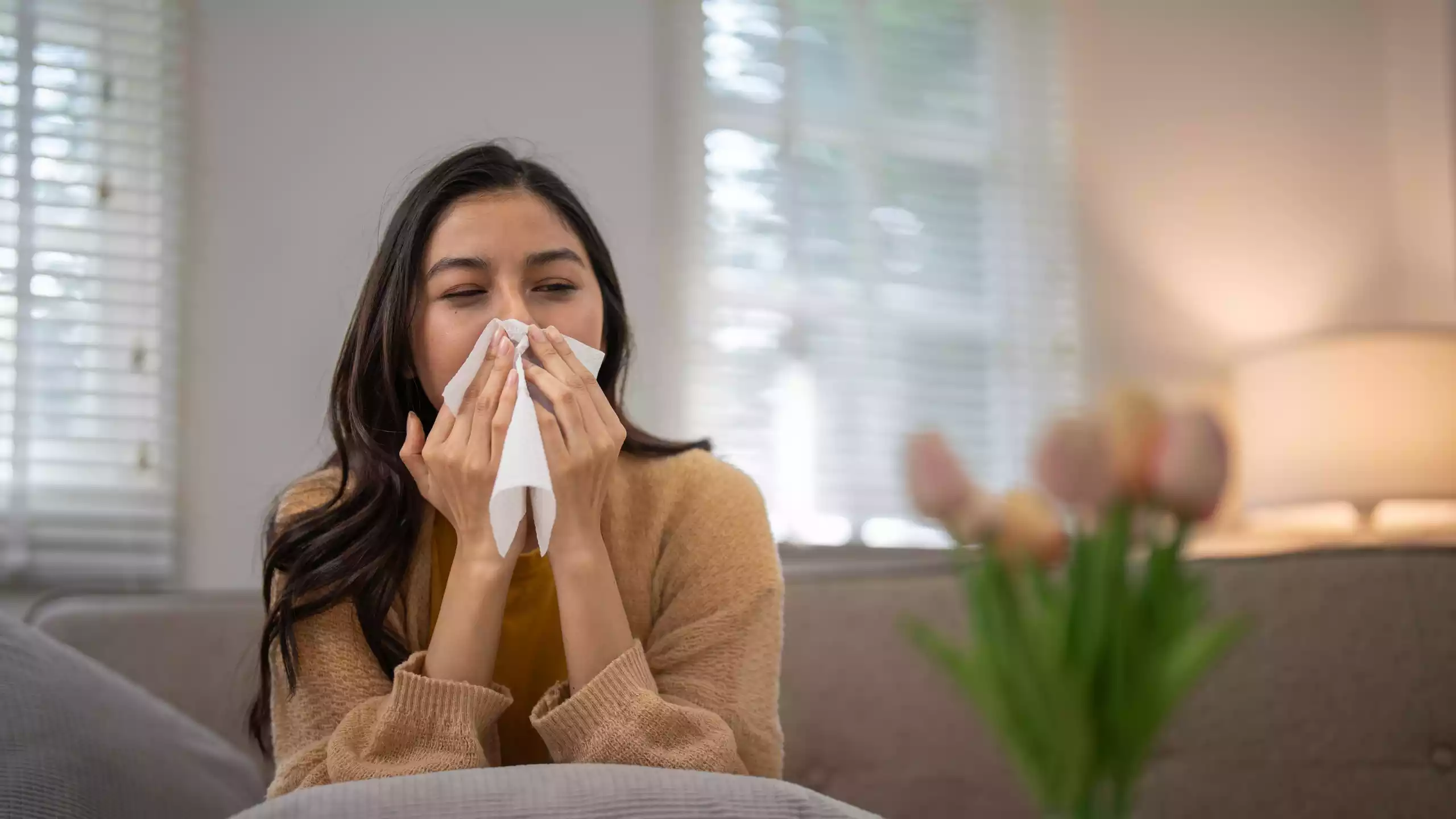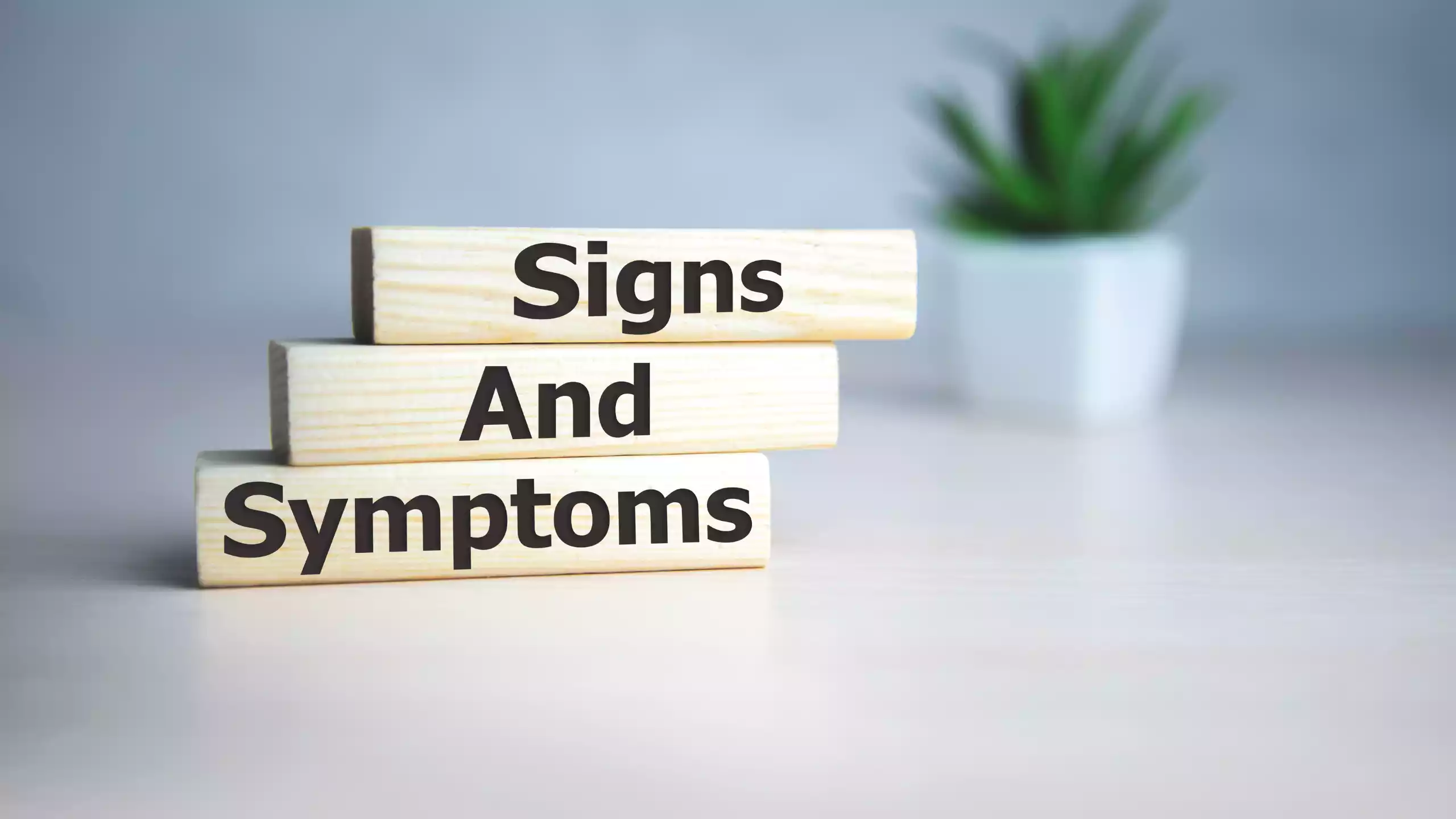Why Are My Allergies Getting Worse Every Year? 5 Tips to Feel Better
May 16, 2025
As the weather gets warmer, many people are starting to be concerned about allergies this spring. According to the CDC, over 1 in 3 adults and 1 in 4 children have seasonal allergies. Over the past few years, the problem of allergies has been worsening, with an estimated 3.8 million missing work or school days every year. The probable reason? Climate change is on average lengthening allergy seasons and intensifying allergy symptoms. We spoke to experts on why climate matters for health, and more specifically to what navigating this allergy season looks like.
Do your allergy symptoms seem to be getting worse every year? You are not imagining it. People have reported increasingly stronger allergic reactions over the years. What may have started as a mild sneeze, itch, or irritation has manifested into a full-on episode of sneezing, watery eyes, blocked nose, and tiredness.
This blog discusses a few reasons why your allergies may be getting worse, and provides 5 tips to reduce allergy symptoms, so you can feel better-naturally!
Why are some people getting allergies for the first time?
Many people are suffering from allergies for the first time because of long-term environmental changes. While temperature and rainfall have always varied, what’s different now is the consistency and intensity of climate change.
Warmer temperatures are lasting for longer periods, and rain occurs differently with more dramatic and erratic changes. This creates the ideal conditions for certain plants and trees to grow in new areas where they couldn’t survive before.
As a result, local ecosystems are changing, new types of vegetation are spreading, and with them, new types of pollen are being released into the air. Even if you have not moved, you might be exposed to pollen your body has never encountered before, which can trigger allergic reactions for the first time in your life.

How does your body react when you breathe in pollen?
When someone has an allergic response to pollen, there is an inflammatory response that takes place. Some of the effects of this inflammation are congestion, runny nose, and sneezing. As the inflammatory process happens in the nose, the mucus membranes become swollen, impeding breathing, and also increases the production of mucus.
Why Allergies Are Getting Worse Every Year
1. Longer and Stronger Pollen Seasons
Pollen season is becoming longer and more concentrated with climate change. Plants produce more pollen in warmer weather, and studies have found that pollen seasons have started earlier and ended later than they have in previous decades and centuries.
A study published in 2021 in the Proceedings of the National Academy of Sciences determined that from 1990-2018, pollen seasons in North America increased by approximately 20 days, and pollen concentrations increased by 21%. Similar patterns are being documented in Europe. With hotter weather and more CO2, trees, grasses, and weeds are producing more active pollen, resulting in more serious allergic reactions.
2. Air Pollution Intensifies Allergy Symptoms
In urban areas, the continued emissions from vehicles and industry pollution are worsening the effects of allergens. Nitrogen dioxide and particulate matter can inflame the respiratory system and which can make individuals more susceptible to allergic reactions from pollen and dust etc.
What is Particulate Matter (PM)?
Particulate matter is a mix of very tiny dust and liquid drops that float in the air. They are so small that we can’t see them, but we breathe them in. These particles come from cars, factories, smoke from burning, dust, and even cooking. There are two types: PM10, which is about the size of dust or pollen, and PM2.5, which is even smaller. PM2.5 is more harmful because it can go deep into the lungs and even enter the blood. Breathing too much of this dirty air can cause cough, asthma, chest problems, tiredness, and other health issues. That’s why it is important to keep the air around us clean.
A study in Environmental Research (2023) showed that air pollution had a major impact on the severity of nasal allergy symptoms among urban populations. Polluted air has the ability to transport allergens farther away, while simultaneously damaging the person´s membrane, making it more likely for the person to react to allergens.
3. Urban Lifestyle and Indoor Triggers
In recent years, our lifestyles have often involved spending more time indoors. Coupled with poor ventilation, this usually means constant exposure to indoor allergens such as dust mites, pet dander, mould, and many of the chemicals in the cleaning products we use. During the cooler months, people often keep their windows and doors shut, central heating creates a better environment for allergens to thrive in as this will often make the indoors dryer.
Indoor air can sometimes be 2 to 5 times more polluted than the air outside. Ongoing exposure to indoor allergens increases the overall allergen load on the immune system and over time this chronic exposure is a contributing factor to the worsening of symptoms. .
4. Weakened Immune Systems Due to Diet and Stress
Poor diet and high stress can weaken your immune system, making it react too strongly to things like pollen or dust that are usually harmless. I have seen how gut health plays a key role in how the body responds to allergens. When the gut is imbalanced, it creates more inflammation in the body, worsening allergic reactions. That is why I always look at the gut first when supporting clients with allergy-related concerns; it is often the missing link.
A study published in Frontiers in Immunology in 2020 described how gut bacteria can impact allergic diseases, and proved that addressing gut health is a major factor in reducing allergy symptoms.
5 Tips to reduce allergy symptoms

It's good to know what is causing your allergies to flare up, but what we really want is some relief, right? Here are five things you can do that can actually help:
1. Track and Limit Exposure to Allergens
Check the pollen forecast often especially during spring and fall so you know what to expect. Make sure the windows are closed and limit going outside from dawn to dusk when pollen is at its highest. Have a shower and change your clothes after you have spent time outside to wash off any pollen sticking to your body and clothing.
If you live in a house with HEPA filters in it, you should also get your air conditioning vents cleaned, and if you live anywhere, it is definitely favoured to purchase a good quality air purifier.
2. Boost Your Gut Health with the Right Nutrition
Focus on the gut-friendly diet that Sanna Leerkes recommends in order to enhance immune function. This will include eating:
- Probiotics from fermented foods (yoghurt, sauerkraut, or kefir)
- Prebiotics from fibre-rich veggies (onions, garlic, bananas)
- Omega-3 fatty acids (flaxseeds and fish)
- Anti-inflammatory foods (cumin, turmeric, or green tea)
3. Use Natural Supplements and Therapies
There are many natural supplements that can help relieve allergy symptoms, especially:
- Quercetin: A natural flavonoid that stabilizes histamine
- Vitamin C: A natural antihistamine and raises our immunity
- Butterbur: An herbal approach with some support for relief with seasonal allergies
- Local Honey: Could help build a tolerance to local pollen
Kinesiology and nutri-therapy with the help of Sanna Life can also help find food sensitivities and balance your body with respect to its reaction to allergens.
4. Create a Low-Allergen Living Environment
Keep the humidity in your home below 50 percent to stop mold from growing. Use hypoallergenic mattress covers and wash your bedding every week at 60 degrees to kill dust mites properly. Declutter your home often to reduce dust buildup. Try not to use scented candles, air fresheners, or strong cleaning products. These products often release volatile organic compounds (VOCs) that can exacerbate allergies, trigger asthma, and degrade indoor air quality.
This might be a good time to consider choosing natural cleaning products or eco-friendly cleaning products, and open windows to ventilate your home on a regular basis, especially after cooking or cleaning.
5. Get a Personalised Health Plan
While every person has specific triggers, their characteristics are dissimilar. When it comes to allergies there is a lot of trial and error which is why working with someone can make a big difference.
At sannalife.health in Switzerland, I take a natural approach using a functional, personalised health plan which covers nutrition, kinesiology, lifestyle coaching, and diagnostic testing, to help you better understand what is actually triggering your allergies and how you can naturally rectify them.
I applied my techniques to work with dozens of professional and amateur athletes and others wanting to reduce allergy symptoms without becoming dependent on heavy medications. Some have visited me in person from places like Bagnes and Geneva, and many others I support remotely. Over time, they have seen their allergy symptoms ease and have been able to reduce or even stop taking medications altogether by following a plan that fits their body and lifestyle.

Final Thoughts
If you are getting worse every year with your allergies, it's not just bad luck. It's the cumulative effect of several factors related to lifestyle, environment, and aspects of your health. You can take control.
There are practical ways to change your body's response, from improving your gut health to reducing allergen intake and then seeking the help of a health professional.
Book your free personal consultation with me and start the road to a healthier, allergy-free future.
Stay connected with news and updates!
Join our mailing list to receive the latest news and updates from our team.
We hate SPAM. We will never sell your information, for any reason.




